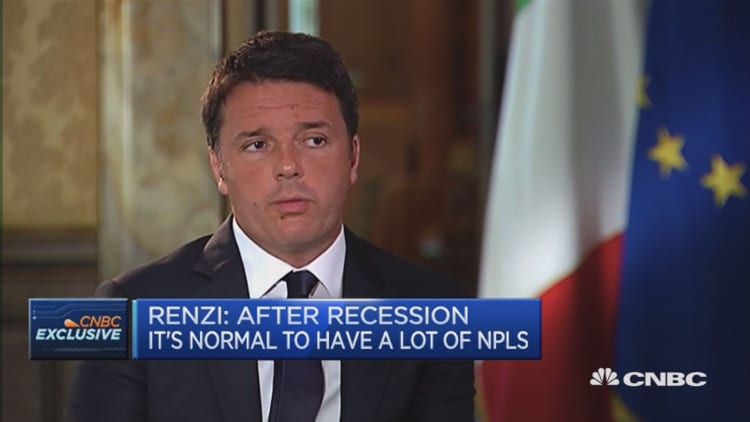
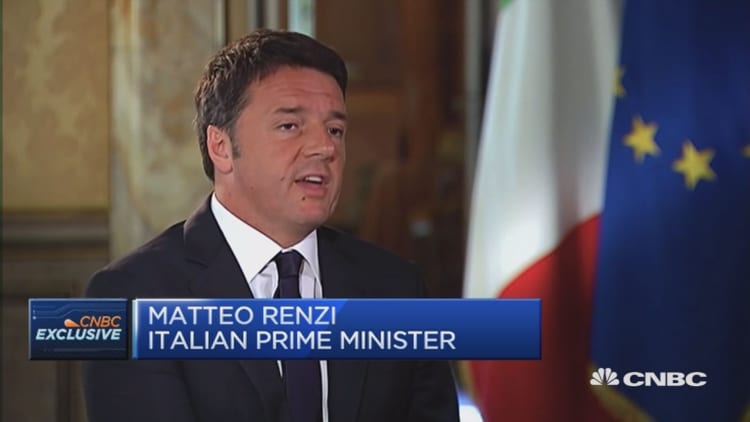

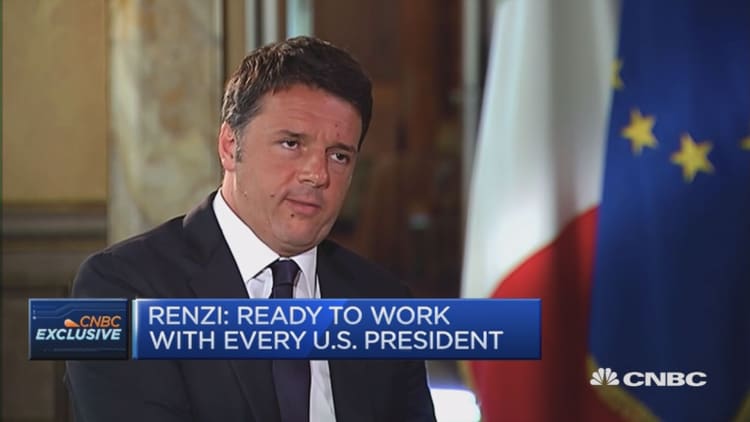
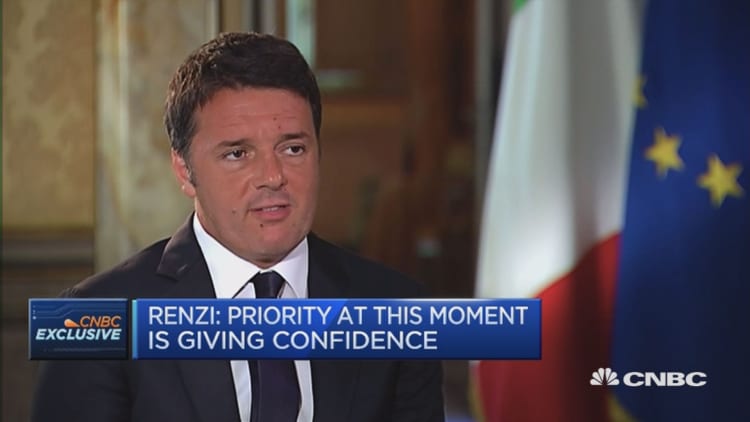
Banca Monte dei Paschi di Siena (BMPS) may have a strong future, Italy's prime minister told CNBC on Monday, in spite of the stricken lender receiving the bottom score in a Europe-wide stress test.
"My view is that Italian banks are good," Renzi told CNBC in Rome.
"There are some problems, yes. The first is Monte dei Paschi, we know. But Monte dei Paschi is also a great brand, the most ancient bank around Europe … If now, without NPLs (non-performing loans), with a clear strategy, I think this bank could be a very good bank for the future."
BMPS is the world's oldest bank and currently the third largest in Italy. It is struggling under a massive pile of bad debts. As expected, it fared poorly in the latest round of the European Banking Authority's (EBA) stress tests, the results of which were revealed on Friday.
The sector was once again front and center for investors on Tuesday morning. Shares of BMPS were down 7 percent and Unicredit tanked and was briefly suspended from trade over concerns about its bad loan portfolio.
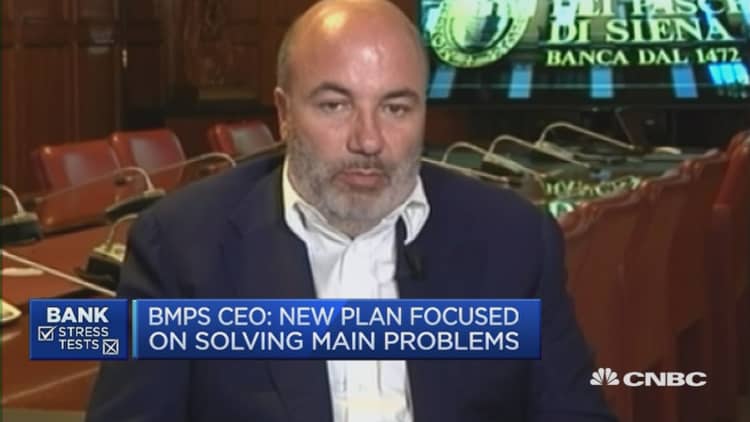
Fabrizio Viola, chief executive of BMPS, told CNBC Monday that he believes the bank will have a "positive" future after a last-ditch recapitalization plan announced on Friday. Moody's, the ratings agency, said in a statement that the "rescue plan would benefit all creditors if completed" but still had a "number of material risks".
The EBA's regular tests are designed to judge how Europe's "systemically important" banks would fare following a big economic shock like the global financial crisis of 2007-08 or the subsequent euro zone debt crisis.
The EBA found that out of 51 top European banks, BMPS would have the greatest difficulty covering its toxic loans between now and 2018 in an adverse economic situation. BMPS's fully-loaded common equity tier 1 capital (CET1) ratio — a key measure of a bank's ability to withstand shocks — would fall into negative territory at -2.2 percent in such a scenario — effectively running out of money.
Concerns were also raised about Italy's Unicredit, whose CET1 ratio would hit 7.1 percent in a situation of severe economy stress.
BMPS's new plan would see global investment banks underwrite its rights issue. This could stave off the need to pump Italian taxpayers' money into the bank or bail-in junior bondholders — which could prove highly unpopular for Renzi. However, it hinges on BMPS raising a hefty 5 billion euros ($5.6 billion) by the end of the year.
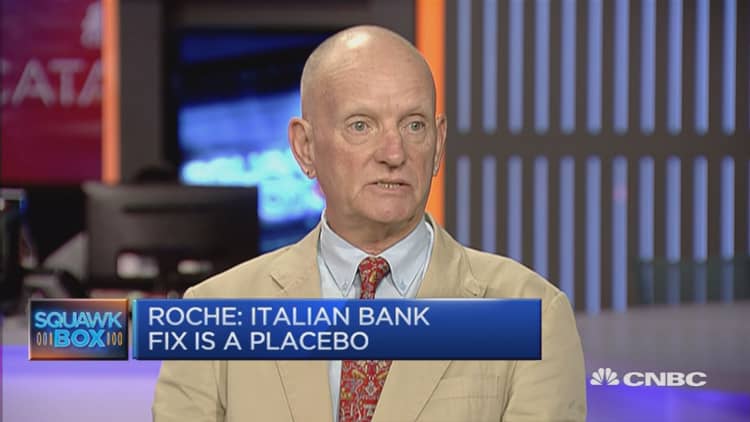
Speaking exclusively to CNBC, Renzi reiterated his commitment to preventing a bail-in of BMPS, despite pressure to consider doing so from EU officials, who fear the potential financial contagion across Europe if the bank collapses.
"The priority in this moment is to give confidence to citizens and if we continue with the terror of a bail-in, this is a problem for the sentiment, the confidence of European citizens," he told CNBC.
The EBA also flagged banks in Germany, Italy, Spain, the U.K., Ireland and France, as having worryingly low CET1 ratios in a hypothetical situation of stress. These included Commerzbank and Deutsche Bank in Germany.
Shares of Deutsche Bank fell by 3.7 percent on Tuesday morning and will be excluded from the STOXX 50 of blue-chip euro zone stocks from next week.
Renzi said the Italian economy was closely entwined with Germany.
"I am really concerned ... for the situation of other banks in all countries, for the financial instruments of other banks," Renzi told CNBC.
"Our economy is a very, very close friend of the German economy, particularly in the northeast. Unfortunately we have two Italys, not one Italy. There is the Italy of the north, which is absolutely near to the German economy," he later added.

